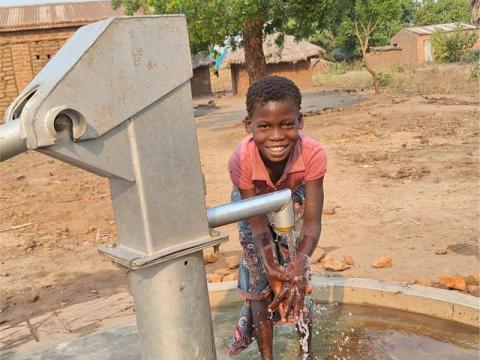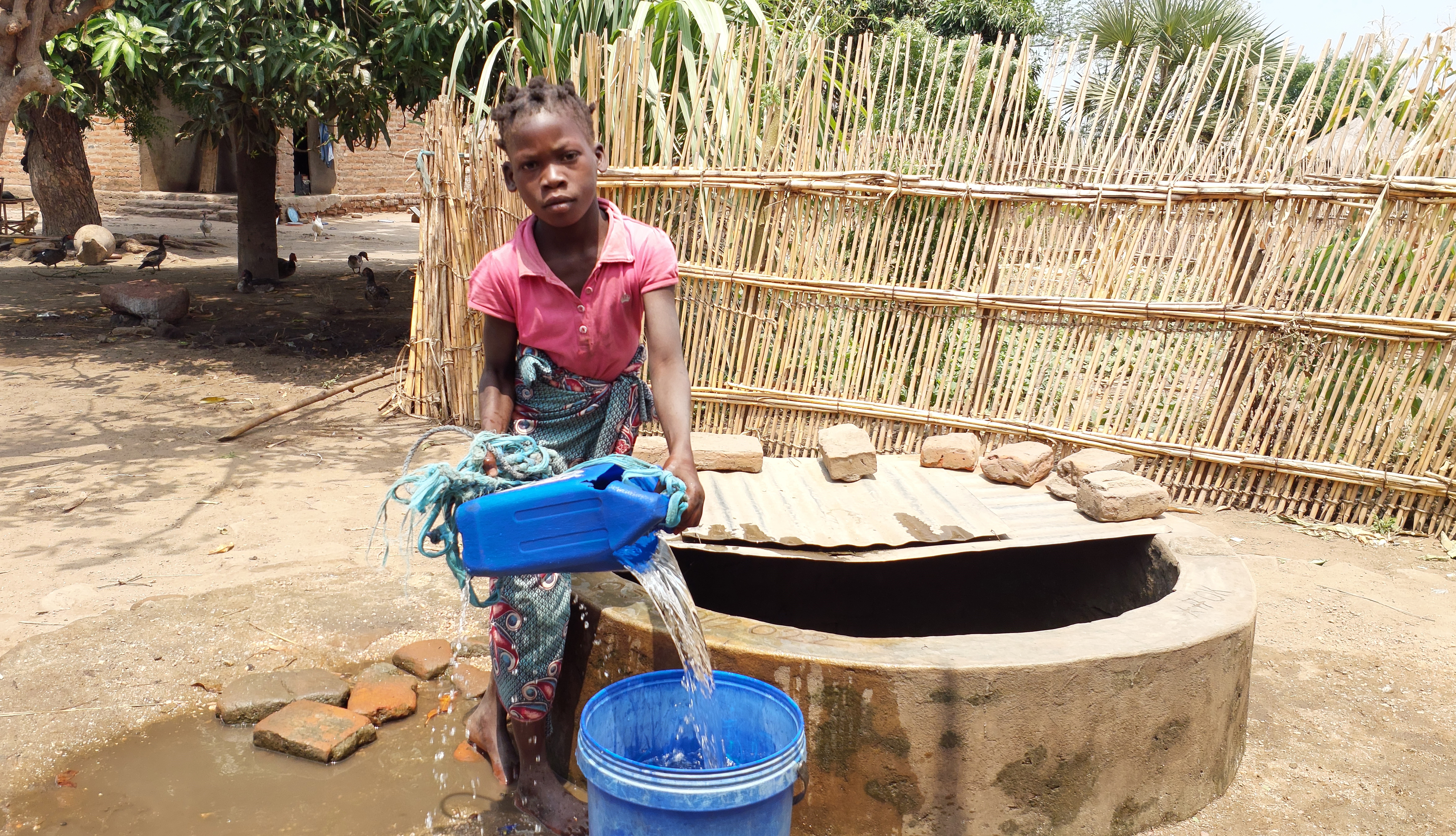A Brighter Future: How Clean Water Supports Girls in Mozambique

Maria, a 9-year-old girl from Mutarara district in Tete province, overcame the fear of falling sick as a result of the consumption of unsafe water. She grew up drinking muddy water from traditional ponds collected about an hour from her house, a situation that often made her be late at school. That dirty water was often causing her intense stomach pains and vomiting.
"Last year, my youngest brother, who was four years old, died of diarrhoea and vomiting, which caused me sadness and fear," says Maria.

One day, in August 2024, her father came home from working in their household production field excited to tell his family that World Vision was about to install a borehole near their house, which made her and her siblings run out of the house to see the construction. In fact, a World Vision staff, a community leader, government members, and construction company workers were there.
In addition to installing the borehole, World Vision staff explained to Maria’s father and the community that defecating in the bush was one of the causes of diarrhoea and vomiting in their community, and to prevent that they should build latrines at their homes. They also trained community members on installing and using tippy taps for handwashing and advised them to always wash their hands correctly with soap after defecating. According to Maria:
Now, I have been drinking clean and transparent water, which is much cleaner than the muddy and dirty water I used to drink before.
Maria now goes to school, always clean, every day and on time, and has recovered her dream of becoming a teacher in the future. So, she thanks God for sending World Vision to save her and her family from diarrhoea.
Water, Sanitation, and Hygiene interventions during the Financial Year 2024 in Mutarara have not only improved access to clean water and sanitation facilities but have also had far-reaching positive effects on the health, safety, and social harmony of the communities. By addressing the root causes of water-related conflicts and diseases through the construction and rehabilitation of boreholes and the WASH Behavior Change messages, these efforts have laid the foundation of a healthier, safer, and more prosperous future for all members of the communities where we operate.
Water challenges were real in Mutarara district; children and their families used to drink inappropriate water obtained from traditional and unprotected wells exposed to waste, grass, and other dirties. There was also the open defecation practice, which contributed to water-borne diseases.
Through World Vision-Mozambique interventions, beneficiary communities, have started drinking clean water and using latrines, contributing to the good health of girls and boys.
In the Financial Year 2024, World Vision-Mozambique contributed to the government of Mozambique's efforts to increase the number of families with access to water by installing 15 new boreholes and rehabilitating 9, corresponding to 100% of the planned, benefiting more than 7.847 people of Mutarara District. According to government authorities, these efforts helped increase water coverage at the District level, from 46.87% to 50.30%.
In Mozambique, World Vision has contributed to increase access to clean water, through the construction of solar powered water piped systems and boreholes that have benefitted nearly 222,000 people and enabling sanitation conditions and good hygiene to more than 190 300 people nationwide in 2024, thanks to contributions of donors such as charity: water, UNICEF, Embassy of Japan, individual contributions and other donors.